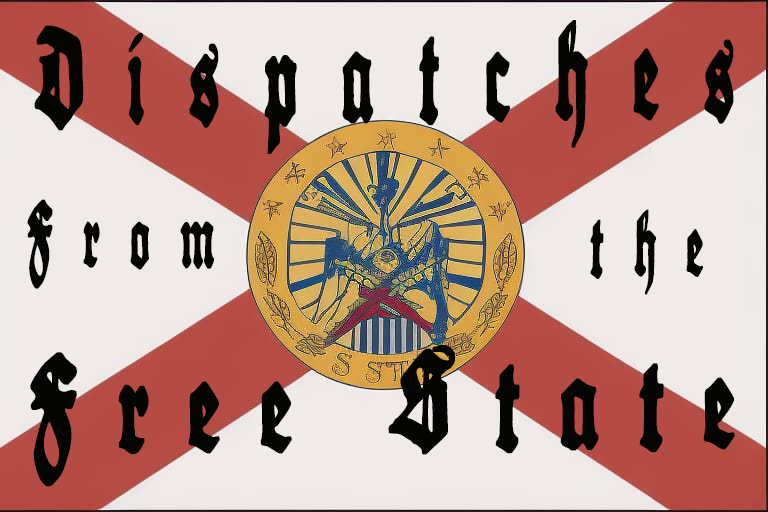A LAZY POLICY FOR A BURDENSOME PROBLEM
The latest debate about President Biden’s long-awaited forgiveness of up to $20,000 in student debt reveals the depth to which Capitalism, or American Market Capitalism, has invaded not just our understanding of economics, but also our cultural understanding of moral action. The incorporation of a “capitalist ethic” into our social discourse paralyzes our sense of the commons and distorts our understanding of satisfying economic needs through public goods as opposed to personal investments. In essence, the current debate directs us to argue the opportunity costs of forgiving debt through a moralist lens of individual responsibility that precludes a more viable debate over education as a public good and a collective responsibility.
The parameters of the debate boil down to three major positions. The moderate liberal position is that maybe Biden should have forgiven $50,000 or some other sum, but at least he did something. Forgiving $20,000 will significantly improve the lives of millions of Americans who are buried in debt for no other reason but that they were trying to improve their own lives.
The left end of the Overton Window on this issue is that Biden blew an opportunity to forgive even more debt and make an even bigger dent. After all, if $20,000 of debt forgiveness is good, $50,000 is better.
Much of the liberal discourse on debt forgiveness has more to do with the political horse race than it does sound educational policy. Forgiving this debt will give Biden one more meaningful accomplishment to bring to the Midterm elections. Forgiving debt was good politics. It appealed to the young, well-educated base, a major constituent. Debt forgiveness is a simple policy to understand. Furthermore, forgiving $10,000 to $20,000 debt is easy to see. It’s right there on my balance sheet.
And the conservative side of the argument?
Let’s face it. It doesn’t matter what Biden does. The Right is going to scream and stamp its feet and bewail this as the most destructive socialist policy in the history of this country. Really. Sometimes I think that Biden could run into a burning building and emerge from the flames with a baby in one hand and a puppy in the other, and Tucker Carlson would find some way to tie this to some Gay Socialist Agenda. Right Wing critiques are largely irrelevant in their ubiquity.
However, the Right-Wing argument is part of the larger discourse, so it would be irresponsible to ignore it. Of course, there’s the standard “SOCIALISM!” argument, but it is absurd and not worth the time and energy. The more substantial and meaningful argument is more in line with the larger conservative project.
In essence, conservatives are arguing what they have always argued since the rise of Reagan. “I don’t want to have to pay for stuff that benefits other people–especially ‘thosepeople’ whom we all know are not deserving.”
Much of the conservative critique hinges on the notion of the ethic of debt. If one takes on a debt, they are expected to repay that debt. Period. Unless they are business interests or right-wing Congress Creatures. But otherwise, there is no context in which “the hardworking taxpayers” should take on a debt that is supposed to be paid by a responsible individual. That they are not expected to pay is just another indication of how we coddle these irresponsible wastrels. It’s the reason why our nation is falling apart. There’s no more personal responsibility anymore. Everybody wants something for nothing.
Now, these loans are coerced. If you want a middle-class, professional life, college is the direction you need to go. It’s almost impossible to break into the professional world without that piece of paper. Sure, there are scholarships out there, but they rarely cover the bulk of college costs. Furthermore, we are talking about seventeen-year-olds signing promissory notes that can burden them for the rest of their lives. It doesn’t matter. They took out the loans, they need to repay.

Liberals then respond with the reasons why the government should forgive the debt. Most of these have to do with larger economic concerns beyond the individual. This debt is a drag on the economy. Burdened by debt and its impact on their credit, young professionals who would otherwise spend to reach their desired lifestyle must now hold back on that new car, or new home. Many would start businesses, but can’t or are unwilling to access the capital required with student loan debt hanging over their heads. Young people are even putting off starting families because of the financial chastity belts they took on before they even understood the concept of compound interest. Forgiving the student loan debt, even all federal student loan debt, would loosen up that money to be spent in the market.
From the liberal point of view, debt forgiveness makes moral and economic sense even if that means some Millennials may be able to dodge some personal accountability that they took on just after puberty. The only question is, how much of the debt should be forgiven? On the right, debts are debts and you pay back those debts.
Neither position addresses the underlying problem. The larger debate should be, what kind of investment is higher education? Is higher education a personal investment by which an individual advances their own prospects for a prosperous future, or is higher education a public investment by which a nation maximizes its human potential?
Those who believe in the former, that higher education is a personal investment couch their arguments on the moral indignity of being forced to pay for someone else’s benefit. Ironically, many making that argument were themselves the beneficiaries of state-funded higher education. They also focus on the moral imperative of paying debts incurred. These are not unreasonable arguments, but they rest on false premises.
This argument rests on the assumption that college or other tertiary education graduates (it’s not just college graduates, but also tech, trade, and vocational students), are the sole beneficiaries of their schooling and training. Indeed, there are many advocates who point out that, even with the debt burden, higher education remains a sound investment when it comes to later earnings. However, increasing access to higher education has universal benefits to society as a whole. Better educated people are more productive and less costly to the overall society.
As it stands, most jobs in the twenty-first century require higher-order skills that can only be achieved by a robust tertiary education system. Without such a system in place, employers in these fields will have to pay more for labor and/or spend more money on training and preparation. The benefits of education are reciprocal. If it is unfair to ask taxpayers to foot the bill for someone else’s benefit, then asking students to take on debt to pay for a system that benefits everyone is grossly unfair. This argument suggests that it is okay for me to enjoy the benefits of a well-educated population without having to pay for it, but that it is wrong to ask me to pay for someone else’s education. It’s a selfish paradigm.
It’s also a self-centered paradigm. Inferred by the personal investment argument is that the beneficiaries of a publicly funded system are getting a free ride at the taxpayer’s expense. To make this argument one must forget that the students themselves are also paying taxes. As we increase their earning potential, they will in the end pay even more taxes into the system. Therefore, while I am paying into a system that will educate the next generation of citizens, the next generation is paying into the same system and will forward the benefit to the generation after them…and so on and so forth. Nobody is getting a free ride. Everyone pays in. Everyone benefits. That’s the definition of a public good.
President Biden, when he was campaigning was willing to offer some modest public funding proposals. He ran on the policy of publicly funded community college, which could have been a significant reform. Of course, this kind of largesse does not pass the Manchin Test of Democratic legislation, so it will never become law. So the President is stuck trying to find executive actions that can make a real difference, without raising the agita of the so-called moderates in the party.
Here, the loan forgiveness falls short in that it is a one-time deal that may benefit students today, but leaves students tomorrow holding the magic growing bag of debt.
I suggest that President Biden would have been better served with a different, arguably more far-reaching, and permanent (so long as Democrats hold the presidency, at least) solution. If the president has the power to forgive federal student loans, then he also has the power to define the interest paid on those loans. Maybe he could write an executive order in which all federal student loans will be offered at zero percent interest. If conservatives and moderates are so bound to the moral imperative of borrowers paying back their debts, this policy satisfies that requirement. Let the students borrow the money and then pay back the principal.
An argument can be made that loans come with interest. That’s what loans are. This isn’t true. How many times have you loaned a friend or a family member an amount of money with no expectation of interest? All you expect is the money back and, someday when you need a loan, that person will be there for you. The federal government does not need to make a profit. An interest-free loan is the difference between someone unburdening themselves in a few years and that same person making payments for most of their working lives.
It’s difficult for the United States to do great things anymore. There are so many powerful forces arrayed against anything that might threaten the increasingly anemic and moribund status quo. The investor class insists on sucking the last fumes from the system before it collapses. They care about their bottom lines and have no vision of the future beyond their quarterly earnings. They have theirs. That’s all that matters.
Therefore, activists and reformers in the United States are, at least for the time being, stuck with celebrating half-measures and small victories. That’s what President Biden just gave us with his student debt forgiveness. As columnist Jamelle Bouie pointed out in the New York Times, “Even a debt relief policy as modest as President Biden’s is a sea change from the direction of American policymaking for the last 40 years.” Maybe this sea change is enough to secure the Democratic Party another two years with a razor-thin majority at the national level. It’s the “life support” theory of American Governance. Just keep things going as long as we can and help as many people as possible until the United States is in a position where it can do great things again.
From this perspective, the Biden debt forgiveness, as good as it is, remains a sad testament to the state of our nation.






Leave a comment